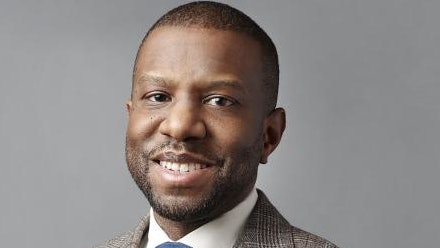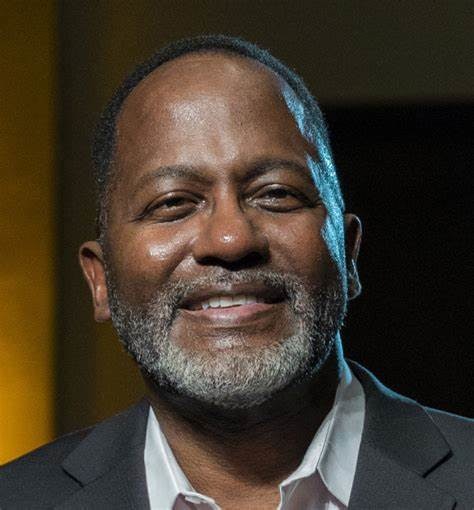The recently released “Project 2025: The Conservative Promise” paints a dystopian picture of American higher education, overrun by a “woke” ideology that supposedly threatens our nation’s very foundations. This document, a roadmap for the next conservative presidential administration, frames diversity and inclusion efforts as a coordinated attack on American values, advocating for a radical restructuring of federal education policy that would have devastating consequences for historically underrepresented students.
 Dr. Ivory Toldson
Dr. Ivory Toldson
The document’s authors misrepresent the origins of progressive thought in education. It’s not some shadowy cabal pushing a nefarious agenda. Rather, it’s the natural result of diverse individuals coming together — students, faculty, and staff from different backgrounds, races, genders, religions, and socioeconomic statuses — sharing their experiences and perspectives, challenging assumptions, and advocating for a more just and equitable society. The call to eliminate “woke” ideology is a thinly veiled attempt to silence those voices that have long been marginalized and to stifle critical dialogue about the very real challenges facing our nation.
Furthermore, the document’s attack on the U.S. Department of Education is deeply troubling. While not without its flaws, the department has played a crucial role in protecting the civil rights of students and ensuring equal opportunity in education. Even today, we see state governments enacting policies that disproportionately harm socially, culturally, and economically diverse (SCED) students.
For example, several states continue to use funding formulas that shortchange historically Black colleges and universities (HBCUs), denying them resources necessary to provide a quality education to students who have historically faced discrimination and continue to face systemic barriers to success. Dismantling the education department would remove a critical safeguard against such discriminatory practices, leaving SCED students vulnerable to the whims of state legislatures that may not prioritize their needs.
The potential impact of the proposed reforms on diversity and inclusion in higher education is particularly alarming. Consider the following:
· Reduced Emphasis on DEI: The document’s hostility towards DEI initiatives is clear. If implemented, its recommendations would likely lead to significant cuts in funding for programs designed to support underrepresented students, including recruitment and retention programs for minority students, financial aid for low-income students, and support services for first-generation college students. This would make it more difficult for students from marginalized backgrounds to access and succeed in higher education, further exacerbating existing inequities.
· Increased Support for Faith-Based Institutions: While promoting choice in higher education is generally a good thing, the document’s focus on protecting the right of faith-based institutions to discriminate based on religious beliefs is a cause for concern. This could create environments that are hostile to students from diverse religious backgrounds, LGBTQ+ students, or students who hold beliefs that conflict with the doctrines of the institution. For example, LGBTQ+ students could face discrimination in housing, student activities, and even classroom discussions. While the document suggests maintaining funding for HBCUs, this support would likely come with strings attached, potentially forcing these institutions to compromise their commitment to diversity and inclusion.
· Shift in Curriculum: The document’s emphasis on free markets and its criticism of certain “area studies” programs raise concerns about academic freedom and the narrowing of intellectual inquiry. Federal funding could be redirected away from programs focused on social justice, race, ethnicity, gender, and inequality — areas of study crucial to understanding and addressing systemic issues in our society — and toward programs that promote a particular ideological viewpoint. This could stifle critical thinking and limit students’ exposure to diverse perspectives.
“Project 2025” proposes an alarming vision for higher education, one that undermines diversity and inclusion and ultimately threatens America’s standing in the world. In an era defined by rapid technological advancement and the pressing challenges of climate change, our nation needs a diverse, innovative, and globally engaged workforce. By limiting access to higher education for marginalized students, stifling free inquiry, and creating hostile learning environments, this proposal would cripple our ability to compete in the global economy and develop the next generation of leaders. It risks diminishing America’s GDP, international influence, and its very role as a beacon of freedom and opportunity. Instead of embracing the richness and dynamism that diversity brings, this document would lead us down a path of intellectual and economic decline, leaving America ill-equipped to face the challenges of the 21st century.
We must actively challenge these proposals, demanding that policymakers prioritize policies that support diverse, equitable, and inclusive higher education. Let’s work together to ensure that higher education remains a pathway to opportunity for all, fostering the innovation and talent that will drive America’s future success.
Dr. Ivory A. Toldson is a professor of counseling psychology at Howard University and editor-in-chief of The Journal of Negro Education.
#Project #2025s #War #Higher #Education #Diversity #Threatens #Global #Competitiveness










